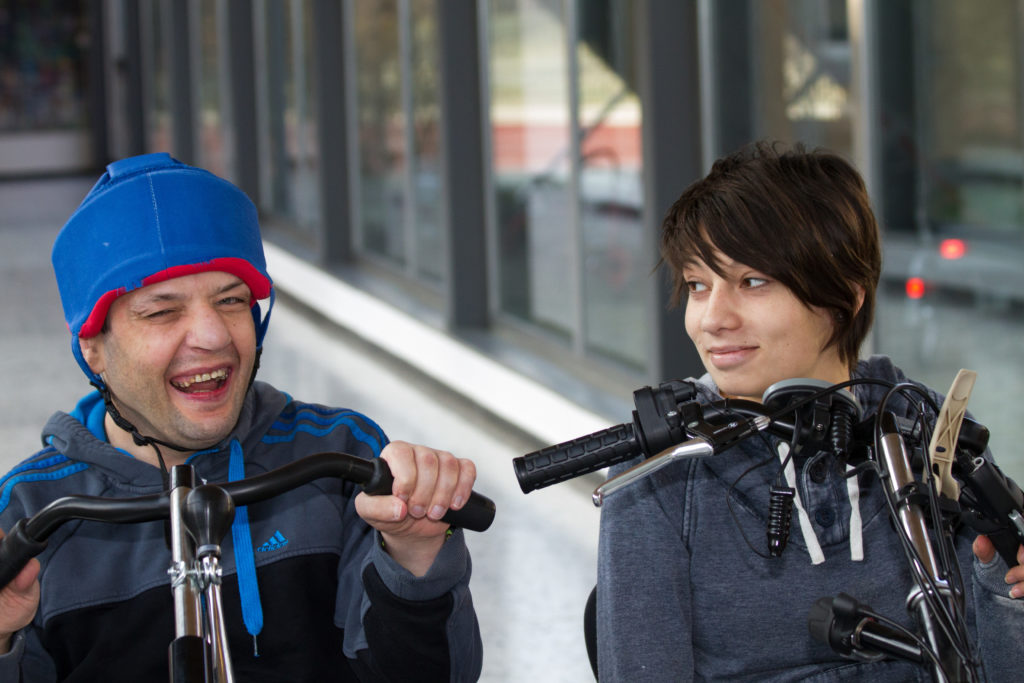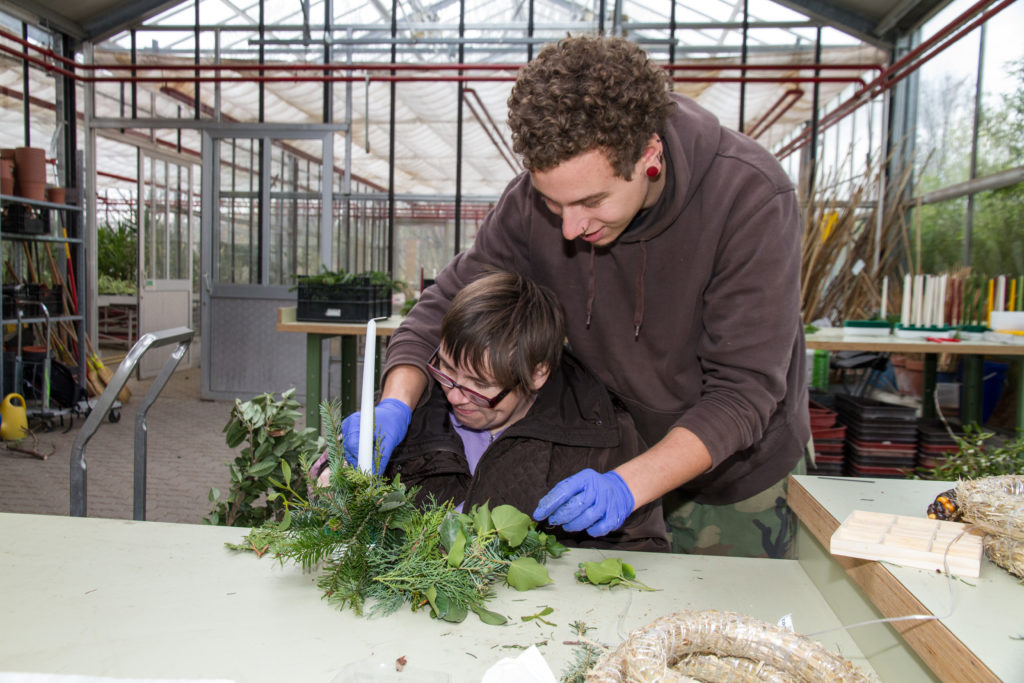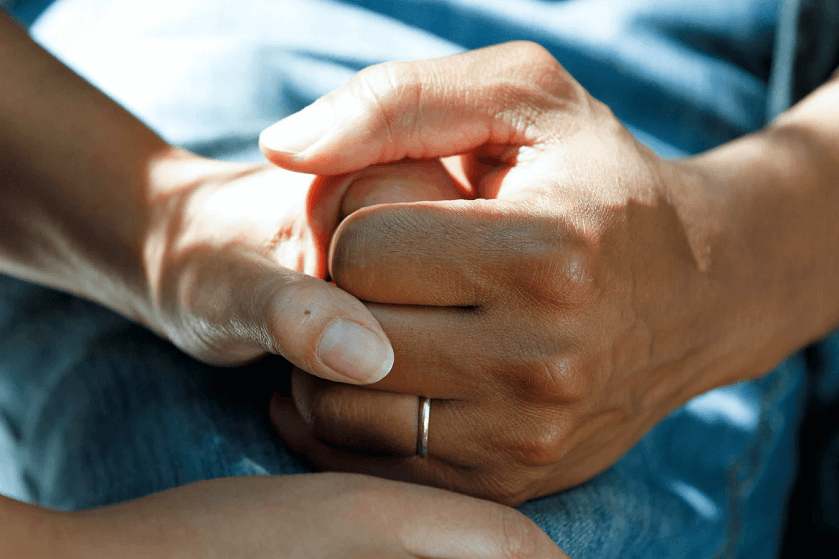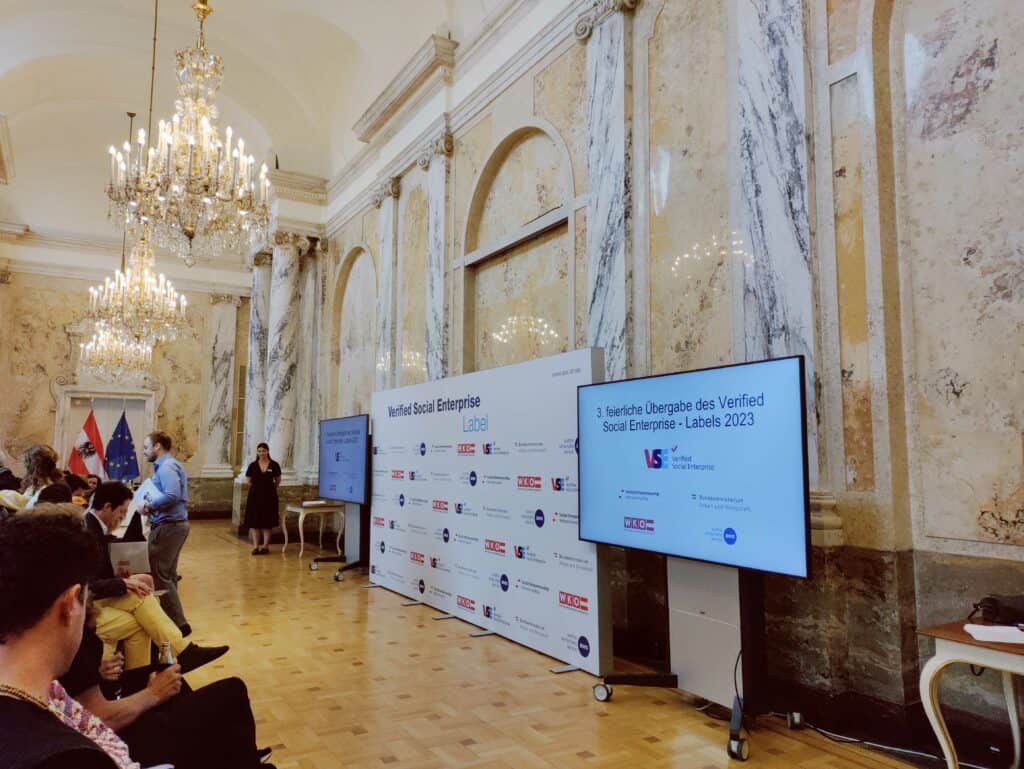Artikel von Marion Schützenauer, ngojobs.eu
überarbeitet am 07.08.2024
Lesezeit: ca. 8 Minuten
Möchtest du wertvolle Erfahrungen sammeln, neue Fähigkeiten entwickeln und gleichzeitig etwas Gutes tun? Dann ist das Freiwillige Soziale Jahr (FSJ) genau das Richtige für dich! Egal ob als Berufsorientierung, zur Persönlichkeitsentwicklung, als Praxisjahr oder Zivildienstersatz: Das Freiwillige Soziale Jahr sorgt für eine unvergessliche Zeit und ist eine unglaubliche Horizonterweiterung.
Wusstest du das rund 1,9 Millionen People in Österreich ehrenamtlich tätig sind?
Besonders für junge People ist das FSJ eine tolle Möglichkeit, sich sozial zu engagieren, den Arbeitsmarkt kennenzulernen, Teamfähigkeit sowie Verantwortungsbereitschaft zu stärken.
Hier sind einige wichtige Fakten auf einen Blick:
- Dauer: zwischen 6 und 12 Monaten
- Alter: Ab 17 Jahren, keine oberste Altersgrenze (meistens zwischen 18 und 24 Jahren)
- Taschengeld: 2024 bis zu 518 € pro Monat
- Vorteile: Kostenloses Klima-Ticket bei Einsatz in Österreich, Fortzahlung der Familienbeihilfe, Anrechnung als Zivildienst ab Einsatz von 10 Monaten möglich
- Einsatzbereiche: Soziale Einrichtungen, kulturelle Institutionen, Umweltschutzprojekte
- Arbeitszeit: maximal 34 Stunden pro Woche
- Start: Bewerbung über das Bewerbungstool auf der Webseite von FSJ möglich
Was ist das freiwillige soziale Jahr (FSJ)
Das Freiwillige Soziale Jahr (FSJ) und das freiwillige Umweltschutzjahr zählen zu den besonderen Formen des freiwilligen Engagements in Österreich. Zusätzlich gibt es in Europa den Friedens- und Sozialdienst.
Es ist eine großartige Chance für junge Personen, die sich in sozialen, kulturellen oder ökologischen Einrichtungen engagieren möchten und gleichzeitig wertvolle Erfahrungen zu sammeln.
Die besondere Bedeutung des FSJ liegt in der Möglichkeit, die schulische Vorbildung zu vertiefen und sich persönlich weiterzuentwickeln und in einem geregelten, geschützten Rahmen unter pädagogischer Begleitung zu arbeiten. Freiwillige können nicht nur in Österreich, sondern auch in Europa tätig werden.
Für Jugendliche ab 17 Jahren ohne abgeschlossene Berufsausbildung bietet das FSJ eine einzigartige Gelegenheit, die Welt des Arbeitsmarktes kennenzulernen, sich sozial zu engagieren und an Herausforderungen zu wachsen.
Ab wann ist eine Bewerbung möglich und welches Alter ist erforderlich?
Für ein FSJ können sich Jugendliche ab 17 Jahren bewerben, wenn sie keine einschlägige abgeschlossene Berufsausbildung haben. Es gibt keine bestimmte Altersobergrenze, aber die meisten Teilnehmer sind zwischen 18 und 24 Jahren.
Einmalig kann ein Freiwilliges Soziales Jahr bei einer zugewiesenen Einsatzstelle in Österreich absolviert werden.
Ein FSJ dauert zwischen sechs und zwölf Monaten, je nach Vereinbarung. Oftmals starten die Tätigkeiten mit September, damit im Folgejahr an die Zeiten von Universitäten uä. angeschlossen werden kann.
Chancen und Möglichkeiten des FSJ für Schulabgänger und Studenten
Für Schulabgänger oder Studenten bietet es einige Vorteile:
Es ist die Chance erste Berufserfahrungen zu sammeln, verschiedene Arbeitsfelder kennenzulernen und sich persönlich weiterzuentwickeln. Es ist eine tolle Möglichkeit die Berufsauswahl zu unterstützen und eine sinnvolle Überbrückung zwischen Schule und Ausbildung oder Studium.
Einige der wichtigsten Vorteile des FSJ sind:
- Berufserfahrung: Du sammelst praktische Erfahrungen, die im Studium und Arbeitsmarkt gefragt sind
- Persönliche Entwicklung: Durch den täglichen Umgang mit Herausforderungen stärkst du deine Teamfähigkeit, Verantwortungsbereitschaft und andere wichtige soziale Kompetenzen
- Vielfältige Einsatzbereiche: Es gibt zahlreiche Möglichkeiten, dein FSJ in sozialen Einrichtungen, kulturellen Institutionen oder im Umweltschutz zu absolvieren.
Die beliebtesten Einsatzgebiete sind:
- Soziale Einrichtungen: Arbeit mit Kindern, Jugendlichen, älteren People oder People mit Behinderungen in Kindergärten, Behindertenwertstätten und Altenheimen, Rettungswesen.
- Kulturelle Institutionen: Unterstützung in Museen, Theatern oder kulturellen Projekten.
- Umweltschutz: Einsatz in Projekten zur Erhaltung der Natur und des Umweltschutzes.

Egal ob du in Österreich oder in Europa tätig werden möchtest, es gibt viele interessante Stellen.
Bei Interesse wende dich am besten direkt an eine Trägerorganisation in Österreich oder in Europa oder an die Fachreferentin des Bundesministerium Soziales, Gesundheit, Care und Konsumentenschutz.
Verschiedene Einsatzbereiche und Projekte
Freiwilliges Sozialjahr
Es gibt viele FSJ-Stellen in verschiedenen Bereichen, die für Schulabgänger und Studenten attraktiv sind. Du kannst in sozialen Einrichtungen wie Altenheimen, Kindergärten oder Behindertenwerkstätten arbeiten. Freiwilliges Soziales Jahr Stellen gibt es in Österreich, Deutschland, der Schweiz und sogar weltweit. Hier geben wir einen Überblick zu Österreich und dem Einsatz in Europa. Eine gezielte Search for Freiwilliges Soziales Jahr auf unserer Plattform ngojobs.eu kann dir helfen, die passende Stelle zu finden.
Freiwilliges Umweltschutzjahr
Wie das freiwillige soziale Jahr ist auch das Freiwillige Umweltschutzjahr eine Sonderform wo du dich in Österreich engagieren kannst. Hier liegt der Schwerpunkt bei der Anwendung und Erweiterung deiner Kenntnisse und Fertigkeiten im Environment-, Natur- und Klimaschutz, zur Berufsorientierung und zur Stärkung deiner Kompetenzen und Fähigkeiten.
Die Einsatzbereiche sind vielfältig, vom Allgemeinen Umweltschutz, über den Animal welfare zur ökologischen Landwirtschaft bis zur Umweltbildung.
Auskunft bekommst du bei den Trägerorganisationen oder beim Bundesministerium für Klimaschutz, Environment, Energie, Mobilität, Innovation und Technologie .
Freiwilliges Soziales Jahr in Europa
Der Sozialdienst in Europa gehört zu den besonderen Formen des freiwilligen Engagements, er kann nicht in Form eines Arbeitsverhältnisses absolviert werden. Zu den Zielen in Europa zählt der Beitrag zur wirtschaftlichen und sozialen Entwicklung eines Landes.
Zu den möglichen Einsatzbereichen zählt z.B. die Bildungs- und Aufklärungsarbeit, Betreuung von Flüchtlingen, Betreuung von alten People, Mitwirkung bei der Einrichtung bzw. Wiederherstellung von Infrastruktur.
Weiters gibt es den Gedenkdienst – der zur Aufklärungsarbeit, Förderung des Gedenkens an die Opfer des Nationalsozialismus zielt und den Friedensdienst in Europa , der einen besonderen Beitrag zur Friedenssicherung leistet.
Anerkannte Trägerorganisationen für den Gedenk-, Friedens- und Sozialdienst in Europa gibt es hier.
Gibt es eine finanzielle Unterstützung?
Auch wenn Du während des FSJ kein volles Gehalt erhältst, gibt es verschiedene Formen der finanziellen Unterstützung, die deinen Einsatz erleichtern können. Dazu gehören:
- Taschengeld: Du erhältst ein monatliches Taschengeld. Die FSJ Bezahlung variiert je nach Einsatzstelle, beträgt aber in der Regel mindestens 75 und höchstens 100% der aktuellen Geringfügigkeitsgrenze, 2024: max. 518,- €.
- Familienbeihilfe: Deine Familienbeihilfe wird bis zum 24. Lebensjahr ausbezahlt.
- Sozialversicherungen: Du bist während des FSJ in der Kranken, Unfall- und Pensionsversicherung angemeldet.
- Klimaticket: Du erhältst ein gratis Klimaticket, bei Einsatz in Österreich.
Im Detail: Mehr zu Versicherungsschutz und den Ansprüchen findest du im Freiwilligenweb.
Mit welchen Arbeitszeiten muss ich rechnen?
Während dem FSJ darf man die Wochenarbeitszeit von 34 Stunden nicht überschreiten. Während der zehn- bis zwölfmonatigen Einsatzdauer gibt es pro Monat rund zwei Tage Freistellung unter Fortzahlung des Taschengeldes, um sich zu erholen und Kraft zu tanken.
Freiwillige Arbeit – ist eine der Chancen im Leben
- Persönliche Weiterentwicklung: Stärkung der Fähigkeiten wie Verantwortungsbereitschaft, rhetorische Fähigkeiten, organisatorisches Talent, Teamfähigkeit.
- Bewerbungschancen: Zahlreiche Unternehmen berücksichtigen dein freiwilliges Engagement bei Bewerbungen. Freiwilligenarbeit verbessert für jüngere People deine persönlichen Arbeitsmarkt- und Karrierechancen.
- Netzwerk: Tätigkeiten in der Freiwilligenarbeit können dir außerdem neue soziale Kontakte bringen, ein aktives gesellschaftliches Leben fördern und deine Lebensqualität erhöhen.
- Zivildienstersatz: Das FSJ kann unter bestimmten Voraussetzungen als Ersatz für den Zivildienst angerechnet werden, wenn du mindestens zehn Monate ununterbrochen im Einsatz bist.
What alumni say about the FSJ ...
As I didn't get a place at university last year, I decided to do the FSJ, which was a great experience and confirmed to me that the social sector is just right for me (Maria H., 19, Steyr)
The FSJ certainly gave me a lot of advantages, knowledge and experience when applying for the physiotherapy course. I also learned so much for life, for which I am very grateful and happy. (Jakob T., 22 years old, Linz)
Ich erlebte kompetente Betreuung und traf tolle, spannende und hilfsbereite Leute (Anna M., 23 Jahre, Ried)
Es war ein super Team. Ich habe tolle Erfahrungen gemacht und bin in meiner Persönlichkeit gewachsen. (Martina W., 18 Jahre, Freistadt)
Einen ausführlichen Artikel von Nina und Christina findest du auf unserer Webseite.

Ein freiwilliges soziales Jahr ist mehr …
als nur Dienste in Sozialeinrichtungen zu leisten. Während des FSJ wirst du als Freiwillige(r) durch pädagogische und fachliche Begleitung unterstützt. In Selbsterfahrungsgruppen, Seminaren und Exkursionen setzen sich die Jugendlichen mit ihren Erfahrungen auseinander und haben die Möglichkeit, Neues zu lernen. Eine pädagogische Betreuung und Begleitung durch geschulte Kräfte im Ausmaß von mindestens 150 Stunden wird den Freiwilligen ermöglicht.
Wie kannst Du dich für ein FSJ bewerben?
Bewerbung und Ablauf
Die Bewerbung für ein FSJ ist unkompliziert und erfolgt über das Bewerbungstool der FSJ Webseite. Hier sind die wichtigsten Schritte:
- Recherche: Informiere dich über verschiedene Einsatzstellen und wähle die für dich passende aus.
- Bewerbung: Reiche deine Bewerbung online (https://www.fsj.at/bewerbung/) ein und gib deine Präferenzen an.
- Vorstellungsgespräch: Nach einer erfolgreichen Bewerbung wirst du zu einem Vorstellungsgespräch eingeladen.
- Einsatzbeginn: Nach einem positiven Gespräch kannst du deinen Einsatz antreten und dein Abenteuer beginnt.
Wichtige Termine und Fristen
Der Beginn eines FSJ ist in der Regel im September, aber auch andere Starttermine sind möglich. Es ist empfehlenswert, sich frühzeitig zu bewerben, da beliebte Stellen schnell vergeben sind.
Eine Win-win Situation für All
Von einem freiwilligen sozialen Jahr profitieren im Idealfall alle Beteiligten. Da sind die People in den sozialen Einrichtungen, die es sehr schätzen von jungen und motivierten Freiwilligen unterstützt und begleitet zu werden. Die Sozialeinrichtungen, die engagierte Jugendliche, und in einigen Fällen neue Mitarbeiter:innen gewinnen. Gleichzeitig profitierst du von neuen Freundschaften, beruflicher Orientierung und wertvollen Kompetenzen, die dich ein Leben lang begleiten werden.
Wichtige Links und Kontakte:
Falls du jetzt neugierig geworden bist und mehr über das Freiwillige Soziale Jahr erfahren möchtest, findest du hier einige nützliche Links und Kontakte:
- Bewerbungstool und wichtige Informationen: FSJ Webseite
- Einsatzbereiche, Trägerorganisationen, wichtige Details, Informationen zur Freiwilligenarbeit in Österreich: Freiwilligenweb
- Videos zum FSJ auf Youtube
- Allgemeine Infos zu FSJ: E-Mail an FSJ Beratung Wien
- Telefonische Beratung Wien: +43/676 877 639 23
- Weitere Beratungsstellen der Bundesländer
- Bundesministerium: Bundesministerium für Soziales, Gesundheit, Care und Konsumentenschutz, Abteilung V/A/6, ‚Freiwilligenpolitik, Stubenring 1, 1010 Wien, Kontaktpersonen
- Job-Alert auf unserer Jobplattform erstellen
Nimm Dir die Zeit dich zu informieren und die ersten Schritte zu deinem Freiwilligen Sozialen Jahr zu unternehmen. Wir wünschen dir viel Erfolg und eine unvergessliche Zeit.



